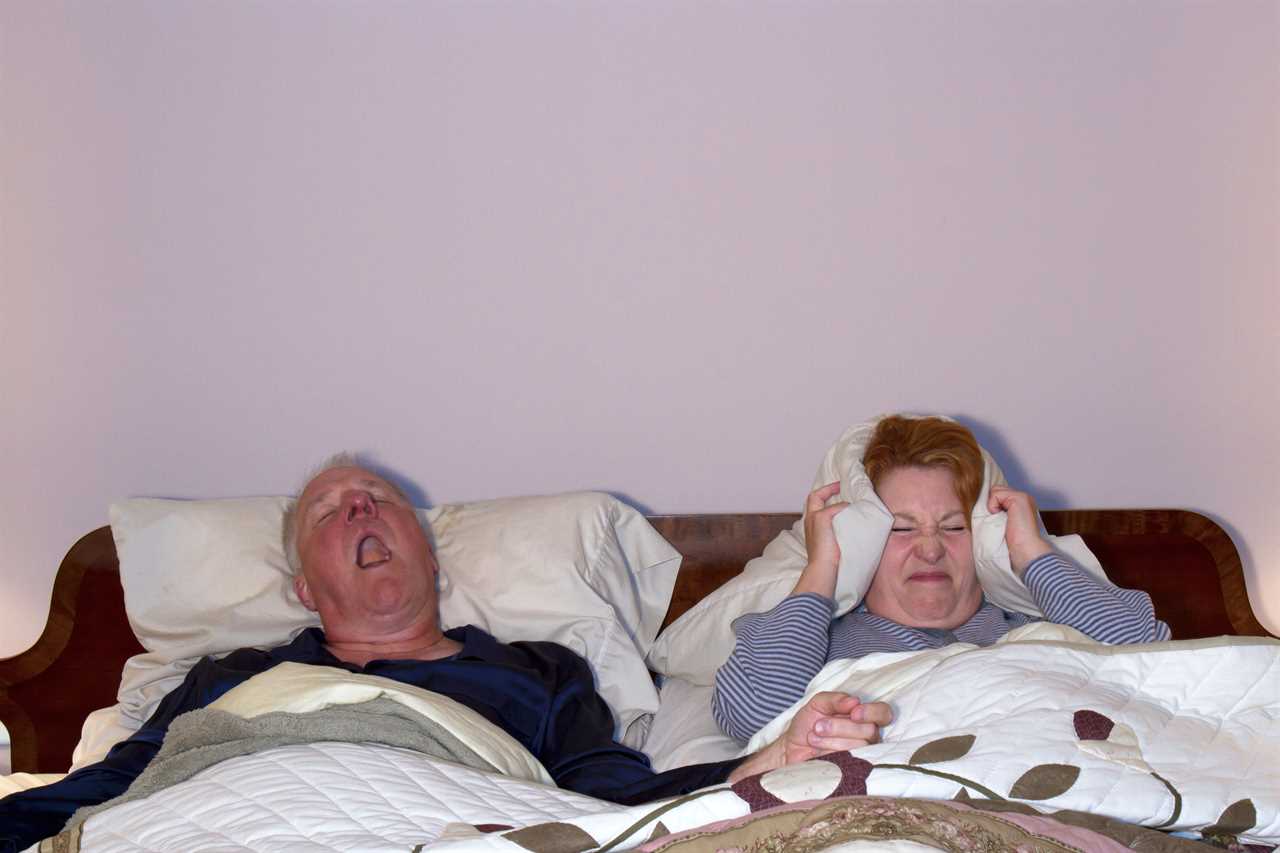LOUD snorers have a higher risk of cancer, a study found.
The body is deprived of vital oxygen at night for people with obstructive sleep apnoea – around 1.5million Brits.

Obstructive sleep apnoea can cause loud snoring and becomes more likely with age – men are more likely to have it
Noisy sleepers are also more likely to develop blood clots and lose brain power faster as they get older.
The condition, which causes bad snoring, choking or gasping in the night, must be diagnosed and treated to avoid health damage, experts said.
Dr Andreas Palm, from Uppsala University in Sweden, said: “Our findings show that oxygen deprivation due to obstructive sleep apnoea is associated with cancer.
“In the past it has not been clear whether this is due to the sleep apnoea itself or to related risk factors such as obesity, heart disease and lifestyle factors.”
Sleep apnoea is a condition where someone’s breathing stops for short periods while they are asleep.
This causes levels of oxygen in the blood to drop, which can starve the vital organs and body tissues, causing serious cell damage in bad cases.
People who are obese, smokers or heavy drinkers are more likely to suffer.
Three studies revealed at the European Respiratory Society conference linked the condition to serious health issues.
Data from 4,200 Swedes found that people with severe sleep apnoea were more likely to have cancer than milder cases.
And a separate study of 358 people by Lausanne University Hospital in Switzerland found the sleep woes led to slower thinking speeds.
Brain cells are extra sensitive to oxygen changes and long-term drops can mean the mind ages faster.
Study author Dr Nicola Marchi said: “We found that obstructive sleep apnoea, and in particular low oxygen levels during sleep, was associated with a greater decline in cognitive function, processing speed and verbal memory.
“We found that people aged 74 and older, and men, were at higher risk of cognitive decline related to sleep apnoea.”






